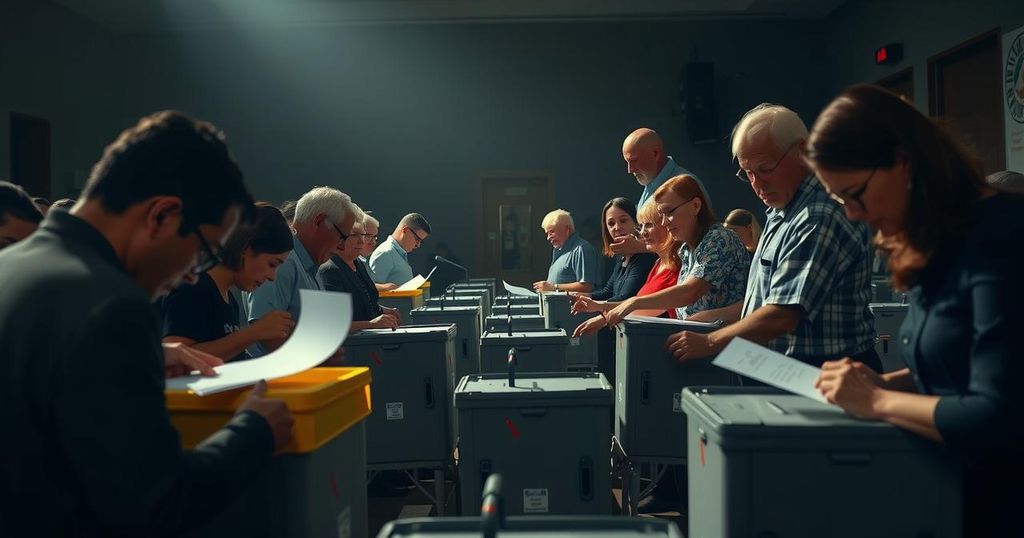Uruguay Engages in Critical Presidential Election as Voters Head to Polls
Voters in Uruguay are set to decide between Yamandu Orsi and Alvaro Delgado in a tight presidential election. Polls show the race could be decided by fewer than 25,000 votes. The political environment remains relatively moderate compared to other Latin American nations, posing questions about voter response to economic issues and incumbent party performance.
Voters in Uruguay will participate in a closely contested second round of presidential elections on Sunday. The race is primarily between opposition candidate Yamandu Orsi of the Broad Front, who garnered 43.9% of the vote in October, and conservative candidate Alvaro Delgado of the National Party, who received 26.8% but benefits from the support of the Colorado Party, marking a combined total close to 42% of the votes.
The political landscape in Uruguay stands in stark contrast to other South American countries, as significant ideological divides are less pronounced. Opinion polls indicate a narrow margin of fewer than 25,000 votes may separate the candidates. Polling stations will open at 8 a.m. local time and close at 7:30 p.m., with initial results expected shortly thereafter. Both candidates are vying for the votes of approximately 8% of the electorate who supported smaller parties in the first round and those who abstained from voting altogether.
While Mr. Orsi has indicated a commitment to maintaining Uruguay’s moderate policies, emphasizing a modern approach to governance, Mr. Delgado is seeking to continue the current administration’s policies, calling for a vote to “re-elect a good government.” Ultimately, the election day outcome may reflect whether Uruguay will diverge from the global trend of diminishing support for incumbent parties due to economic hardships.
The upcoming presidential elections in Uruguay represent a significant event in the political landscape of South America, particularly given the country’s relatively stable political environment compared to its neighbors. Uruguay has historically been characterized by moderate political transitions, avoiding the sharp partisan divisions seen in Argentina, Brazil, and Mexico. The current electoral contest pits two moderates against each other, marking a critical decision point for the electorate as they grapple with issues such as inflation and economic stability.
In conclusion, the presidential elections in Uruguay promise to be a defining moment, showcasing the country’s unique political climate. The close race between Yamandu Orsi and Alvaro Delgado suggests that the results could sway public sentiment either toward continuity or change. Voter turnout will be crucial, particularly among those who supported smaller parties or did not vote in the first round. The outcome may also influence broader trends in governance amid economic challenges.
Original Source: www.ndtv.com




Post Comment